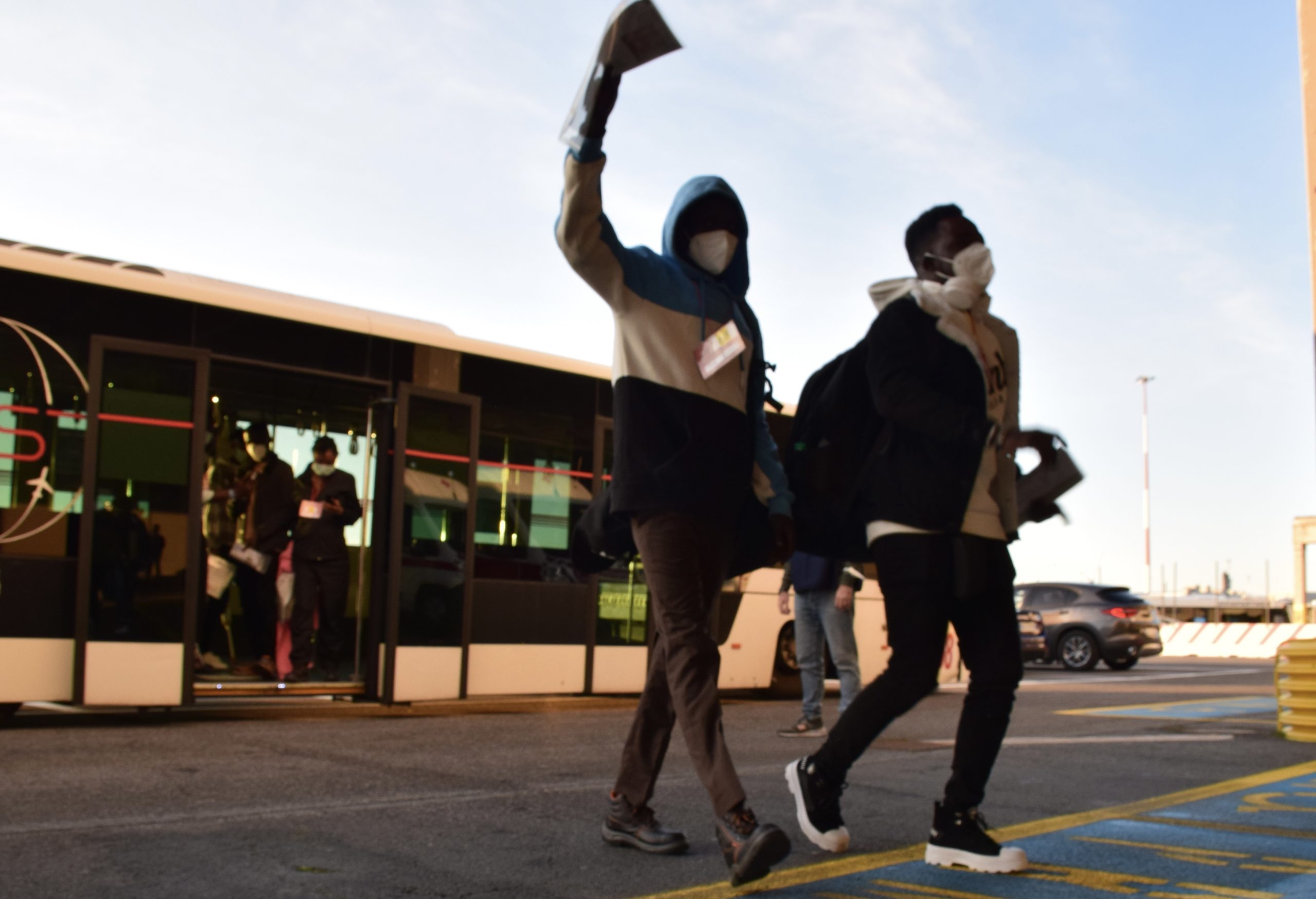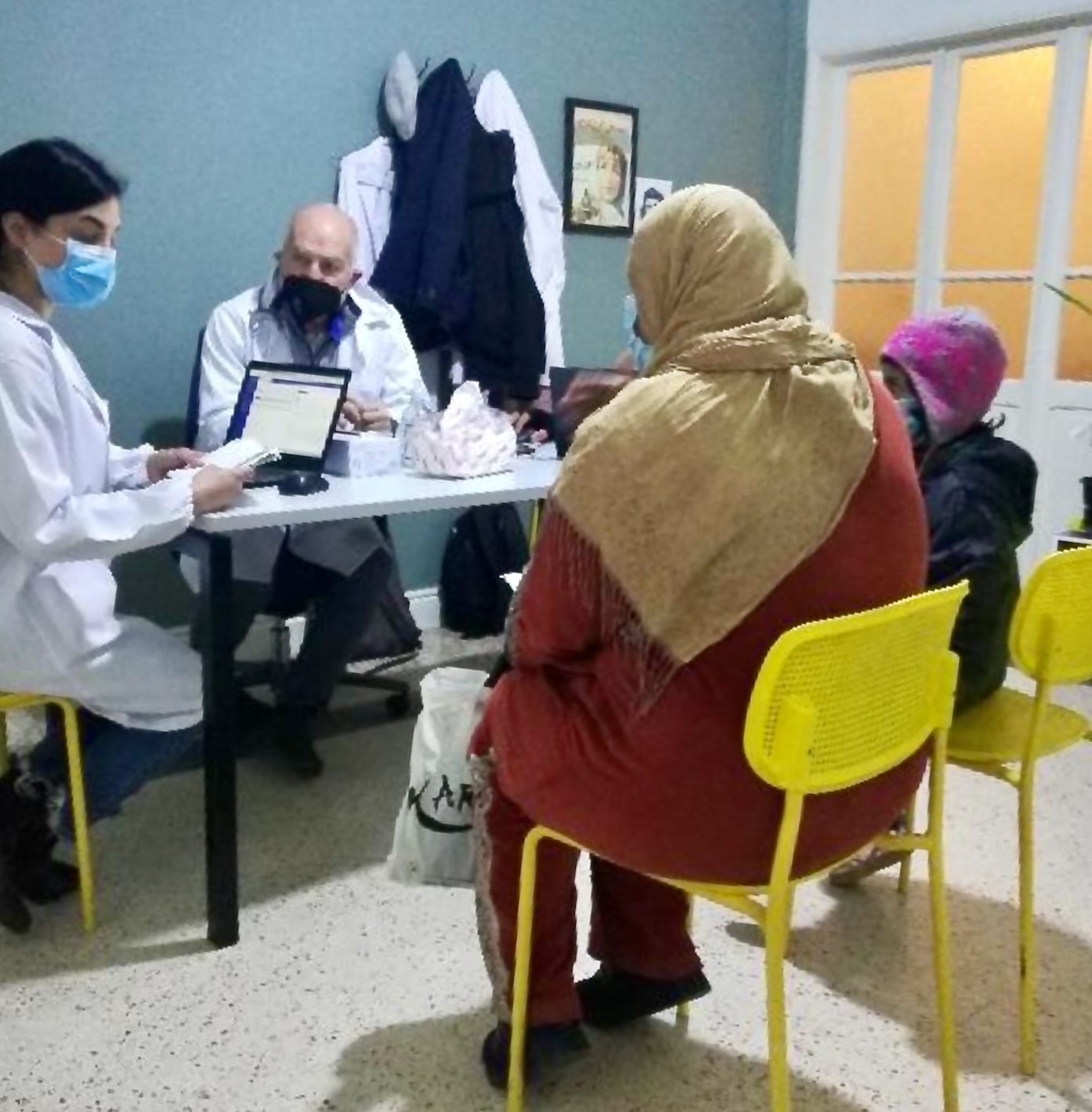HUMANITARIANCORRIDORS
The Federation of Protestant churches in Italy (FCEI), together with the Waldensian Board and the Community of Sant'Egidio, together pioneered and promoted Italian Humanitarian Corridors, the first ones implemented in Europe.Humanitarian Corridors (HC) are the result of an ecumenical collaboration between Protestants and Catholics who have chosen to join forces in a high-profile humanitarian project aimed at vulnerable refugees .
HC are financed largely by the Otto Per Mille tax allocation of the Waldensian and Methodist churches, and increasingly by other Protestant communities in Italy and abroad, other religious bodies, international ecumenical networks and fundraisers.
The first Memorandum of Understanding for Humanitarian Corridors was signed on December 15, 2015 by the sponsoring bodies and the Ministries of Foreign Affairs and of the Interior to allow, within a two year period, one thousand Syrian refugees who fled to Lebanon to reach Italy legally and safely on regular scheduled flights. The Lebanon Protocol was then renewed for another thousand people in 2017 and another thousand in 2021.
The humanitarian corridors programme was a regional winner for Europe in the 2019 edition of UNHCR's Nansen Refugee Award.

The legal basis for HC is provided by Article 25 of EC Regulation 810/2009, which grants Schengen countries the ability to issue humanitarian visas valid for their territory. HC are thus a replicable model in Europe, as has been the evidenced, for example, in France and Belgium. The sponsoring institutions - through alerts provided by a network of collaboration (local and international NGOs, associations, churches and ecumenical bodies, etc.) - identify people who can access the program, subject to verification by the project team and consular authorities. When the Italian institutions and relevant authorities have completed the necessary verifications, humanitarian visas valid for Italy are issued. Once in Italy, the beneficiaries have the opportunity to apply for asylum, being supported at the socio-legal level as well as for an initial period of reception, accompaniment and integration. Reception in Italy is entrusted in part to the sponsoring bodies and in part to the Italian government. FCEI is involved in hosting both directly and by relying on a growing network of bodies in solidarity: lay and religious associations, individual families, organizations and projects, first and foremost the Waldensian Diaconiate. Participants in the programme are accompanied and provided with lega, employment, educational and healthcare support geared at achieving gradual autonomy. Widespread and participatory hosting generates solidarity at the ecumenical level, fosters social inclusion and reinvigorates the local communities engaged in the project.
Among CU objectives, the most important are to prevent the fatal journeys and ragedies at sea and in the countries from which people flee; to counter the business of human traffickers and criminal organizations by promoting legal routes; to grant vulnerable people (victims of persecution, torture and violence, families with children, single women, the sick, people with disabilities) legal entry into the territory; and to manage entry safely onto Italian territory.
FCEI, together with many other civil society entities - secular and religious - is working for more safe and legal pathways to be opened, so that the right to move and to self-determination is not only guaranteed to the richest part of the world's population.
MEDICAL HOPE
Medical Hope was established within the Humanitarian Corridors project in Lebanon, a health initiative that provides medical support to all people, refugees but also locals in need, who are denied access to healthcare in the country due to lack of economic resources.
The health situation in Lebanon is very serious, access to medical care being unaffordable for the poorest people and refugees; costs are high both for private clinics and hospitals and for medicines, and 82% of the Lebanese population lives below the poverty line. The deepening social, political and economic crisis has made life in Lebanon increasingly difficult.Medical Hope also collaborates with the Nation Station clinic in the Geitawi neighborhood, a project set up in the aftermath of the explosion in Beirut in August 2020 and which has become a landmark in the area. Visits are free and preventative health classes and play-creative workshops are also organized. Medical Hope is supported in large part by the Otto per mille dell'Unione cristiana evangelica battista d'Italia (UCEBI).



